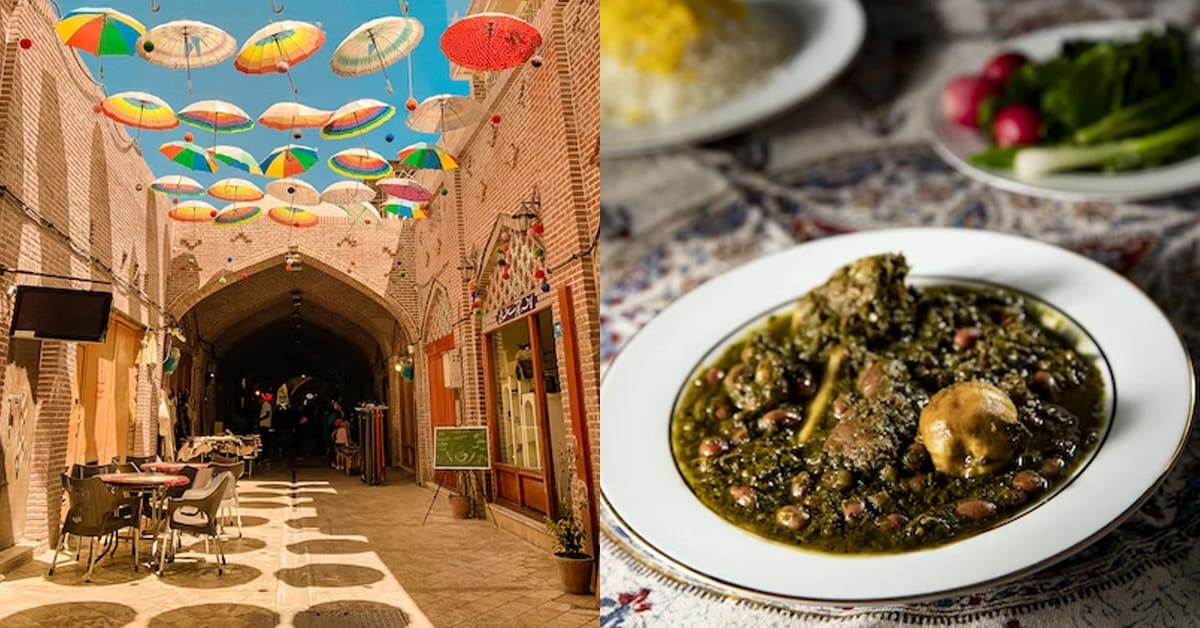Iranian cuisine is a rich and diverse culinary tradition shaped by centuries of history, culture, and geography. With its unique blend of flavours, spices, and ingredients, Iranian food truly reflects the country’s rich cultural heritage.
Iranian cuisine is a feast for the senses, from the aromatic saffron rice dishes to the succulent kebabs and stews. The use of fresh herbs, fruits, and vegetables, along with various meats and grains, makes Iranian food healthy and delicious.
Iranian cuisine
Is Iranian food halal?
As per Islamic dietary laws, Iranian food can be halal if it is prepared according to the guidelines of halal food. Halal food refers to food that is permissible for Muslims to consume, and it must be prepared and processed in a specific way.
This includes the use of halal meat, which is meat that has been slaughtered according to Islamic guidelines. Many Iranian dishes, such as kebabs, stews, and rice dishes, can be made with halal ingredients and prepared in a halal manner.
What kind of food do Iranian eat?
Iranian cuisine is diverse and influenced by the country’s geography, climate, and history. Some popular Iranian dishes include:
- Kabab: Grilled meat, usually lamb or beef, served with rice and vegetables.
- Ghormeh Sabzi: A stew made with herbs, kidney beans, and meat (usually lamb or beef).
- Tahchin: A rice dish made with saffron, yogurt, and chicken or lamb.
- Ash Reshteh: A thick soup made with beans, noodles, and herbs.
- Fesenjan: A stew made with pomegranate paste, walnuts, and chicken or meatballs.
- Khoresh Gheymeh: A stew made with split peas, tomatoes, and meat (usually lamb or beef).
- Shirin Polo: A sweet rice dish made with saffron, orange peel, and almonds.
- Mirza Ghasemi: A dish made with grilled eggplant, tomatoes, and garlic.
- Zereshk Polo: A rice dish made with barberries, saffron, and chicken.
- Baghali Polo: A rice dish made with dill and fava beans.
How can you tell if the food is halal in Iran?
In Iran, halal food is generally labeled as such and can be found in halal-certified restaurants and markets. Additionally, many Muslims in Iran follow dietary laws and may be able to provide guidance on where to find halal food.
Is it hard to find halal food in Iran?
According to research, Iran is an Islamic country, and halal food is widely available in most restaurants and food establishments. However, it may be more challenging to find halal food in some remote areas or small towns.
It is always advisable to check with the locals or ask for recommendations to ensure that the food is halal.
Is Iranian food healthy?
Iranian cuisine is generally considered healthy as it includes a variety of fresh fruits, vegetables, herbs, and spices. Many dishes are also based on whole grains, legumes, and lean proteins such as chicken, fish, and lamb.
However, some dishes may be high in calories, fat, and sodium, so it is important to choose wisely and eat in moderation.
What is Iranian food similar to?
Iranian food is similar to Middle Eastern and Mediterranean cuisine, with influences from Turkish, Arabic, and Central Asian cuisines. Some dishes may also have similarities to Indian and Pakistani cuisine.
Steps to find halal food in Iran
Here are some general steps to find halal food in Iran:
- Look for restaurants or food stalls that have a halal certification or sign. This indicates that the food is prepared according to Islamic dietary laws.
- Ask locals or hotel staff for recommendations on halal restaurants or food options in the area.
- Check the ingredients of packaged foods or snacks to ensure they are halal certified.
- Avoid non-halal meats such as pork and alcohol-based drinks.
- Consider vegetarian or seafood options if you are unsure about the halal status of a particular dish.
- Be aware that some restaurants may serve both halal and non-halal food, so it’s important to clarify with the staff before ordering.
- If you are traveling during Ramadan, be aware that some restaurants may have limited hours or may only serve iftar meals during sunset.

